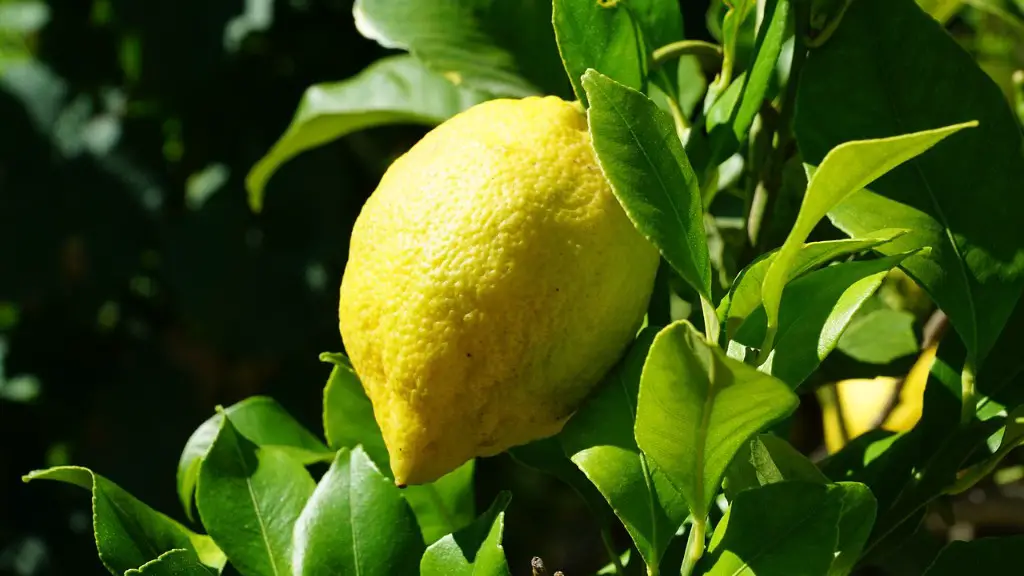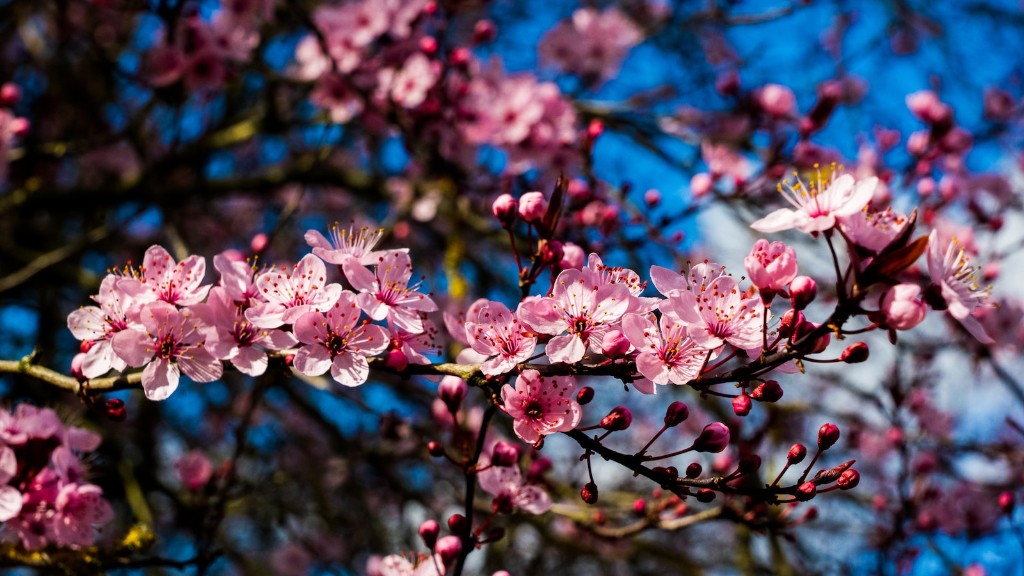Caring for a lemon tree often involves fertilizing. Fertilizing your tree helps it recover from losses after fruiting and helps it to maintain healthy growth. It is important to choose the right type of fertilizer for your lemon tree and apply it correctly. The following will explain how to fertilize a lemon tree.
The most important step in correctly fertilizing a lemon tree is to determine which nutrients your tree needs. Nitrogen and phosphorus are the primary nutrients needed for a thriving tree, though trace elements such as zinc, iron and manganese are also beneficial. A soil test can determine which nutrients are lacking in your soil.
Once you know what nutrients are needed, you can choose the right fertilizer. Citrus trees, including lemon trees, require a fertilizer with a balance of nutrients. A good phosphate, nitrogen and potassium ratio is 10-10-10 or 8-8-8. Avoid using a fertilizer with added urea, nitrogen sulfate or ammonium nitrate since too much nitrogen can cause leaf burn. Select an organic or slow release fertilizer as this is gentler on the tree.
It is important to avoid over-fertilizing your lemon tree. A healthy and well-established tree typically only needs one fertilizer application in the spring, after the bloom. Weak trees may need feeding more frequently with small applications of fertilizer throughout the growing season. Always read the application instructions on your selected fertilizer for correct application.
When applying fertilizer, spread it evenly throughout the soil around the base of the tree, making sure it does not come into contact with the tree’s trunk. Move the fertilizer slightly into the soil. Alternatively, mix it into the topsoil. After application, be sure to gently water the tree so the fertilizer gets into the roots. Do not fertilize a lemon tree immediately after it has been potted.
Finally, monitor your lemon tree over the season and adjust the application frequency and quantity as needed. Keep an eye out for signs of over-fertilization such as leafburn, wilting, yellowing foliage, or stunted growth. Under-fertilized trees often display signs of poor growth, yellowing and weak branches. With the right amount of fertilizer, you should be able to provide your lemon tree with the nutrients it needs to thrive.
Types of Fertilizer
There are different types of fertilizer which can be used for lemons. These include inorganic and organic fertilizers. Inorganic fertilizers, also known as chemical fertilizers, are made from synthetic compounds, usually in the form of a powder or granules. Synthetic fertilizers normally contain nitrogen, phosphate and potassium – the three elements that are generally necessary for buidling healthy, vigorous trees. Most synthetic fertilizers also contain trace elements such as zinc and iron, which can also aid in healthy growth. Organic fertilizers usually consist of natural components such as plant, animal or microbial byproducts, or composted plant matter.
Organic fertilizers are slowly released and provide a steady stream of nutrients to the soil. Organic fertilizers may not always contain the exact same levels of nutrients as chemical fertilizers, however this is not of much concern since most soils do not need one element to be added periodically. In fact, organic fertilizers such as compost can actually be a great source of trace elements that may otherwise be lacking in the soil. For this reason, using a combination of organic and inorganic fertilizers is often a good choice when fertilizing lemon trees.
When deciding between inorganic and organic fertilizers, it is important to consider the soil, tree type, and the climate. Heavy soils, for example, may require more frequent applications of chemical fertilizers, as heavy soils tend to absorb and deplete nutrients more rapidly. But for lighter soils, organic options may be the best choice. It is also important to consider the type of tree as some varieties may not respond particularly well to synthetic fertilizers, while others do better with organic options.
When selecting a fertilizer, it is important to read the label carefully and select a fertilizer that is specifically designed for lemon trees. Using a general fertilizer may not give your tree the exact nutrient levels it needs.
Timing and Frequency of Fertilization
When fertilizing a lemon tree, timing is important. Young trees require more frequent applications of fertilizer than mature trees. In general, a young lemon tree should be fertilized every eight weeks, while a mature tree only needs fertilizing once a year in spring. In areas with mild winter climates, a second application may be needed at the start of the summer.
It is important to avoid over-fertilizing lemon trees. Over fertilization can cause a build-up of nutrients in the soil, resulting in increased insect and disease problems and poor growth. It is therefore important to stick to the recommended application rates, which will vary depending on the type of fertilizer used.
In addition to the amount of fertilizer used, the location of the tree is also important. Fertilizer should be applied to the edge of the root system, avoiding contact with the trunk and roots of the tree. If possible, use a soil test to determine the specific nutrient needs of your tree and follow the fertilizer recommendations closely.
It is also important to water the soil adequately after fertilizing. This will help to ensure that the fertilizer is absorbed by the soil and can reach the tree’s roots. It is important not to overwater the tree, however, as this can reduce the effectiveness of the fertilizer.
Health Benefits of Fertilizing
Fertilizing a lemon tree can provide many health benefits. Fertilizer helps to replenish the soil with essential nutrients, ensuring that the tree gets what it needs for healthy growth. Fertilizing can also increase the number and size of the fruit produced, resulting in a healthier harvest. Fertilizer can also help to prevent diseases and pests, encourage deep root growth, and increase the tree’s resistance to environmental stressors such as strong winds, cold temperatures and drought.
Fertilizing a lemon tree is an important part of tree care and should be part of a regular maintenance program. With the right type of fertilizer, the right amount and timing, and adequate water, lemon trees can be healthy and productive for many years.
Fertilizer Application Tips
When using fertilizer for lemon trees, there are a few tips that can help ensure that the fertilizer is applied correctly and safely. For example, always use the correct amount of fertilizer and avoid applying too much or too little. Make sure the granules or powder are mixed into the soil properly, and water the soil after fertilizing. It is also important to wear protective gear such as gloves, a dust mask and safety glasses to protect you from any potential harm. Lastly, make sure to read the instructions on the fertilizer label carefully and follow the recommendations for best results.
Organic Fertilizers for Lemon Trees
Organic fertilizers are a popular choice for lemon trees, as they are gentle to the environment. Organic fertilizers are typically slow-release and are made from natural sources such as manure, compost, and plant or animal byproducts. Among the most popular organic fertilizers imeet is kelp or seaweed meal, which is a natural source of nitrogen, phosphorus and potassium and trace elements such as magnesium and iron. Other organic fertilizers include bone meal, blood meal, and fish meal.
Organic fertilizers are not as concentrated as chemical fertilizers, so they should be applied more often, usually every 4-6 weeks throughout the growing season. As with chemical fertilizers, it is important to read the instructions on the fertilizer for the correct application rate. Organic fertilizers are also best when mixed into the soil before planting, which will help to ensure that the soil can absorb the nutrients more efficiently.
Fertilizer Alternatives
Fertilizers are not the only way to keep a lemon tree healthy. There are a few other methods worth considering as part of your lemon tree care program. One option is to keep the soil around the tree well-mulched, as this can help to prevent weed growth and water evaporation while providing additional nutrients to the soil. Compost is another great addition to the soil. Composting involves mixing organic matter such as kitchen scraps, grass clippings and leaves, and can provide the soil with valuable nutrients. Composting also helps to improve the structure and texture of the soil over time.
Finally, look for natural enemies of pests and diseases. These can be manually removed from the tree or the area, or beneficial bugs and fungi can be purchased from a garden store and released into the tree’s environment. If done correctly, these natural solutions can provide a good alternative to chemical applications when caring for a lemon tree.



